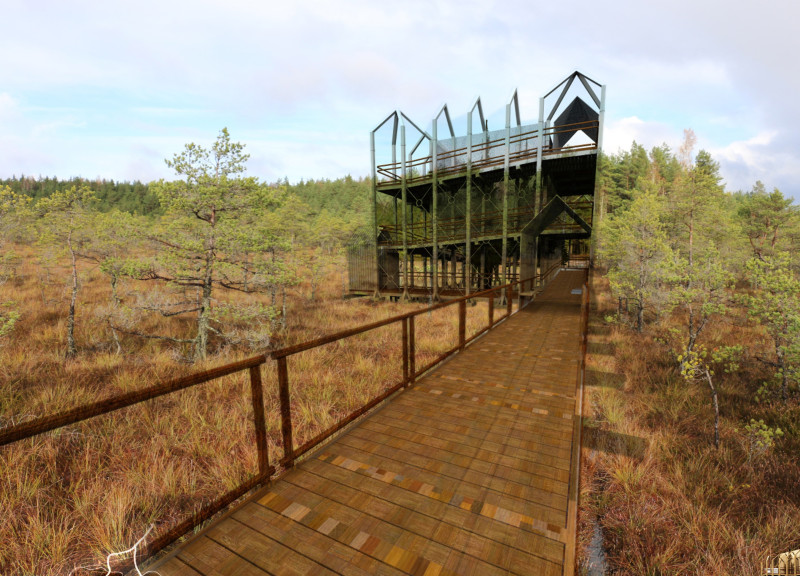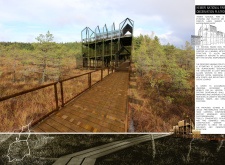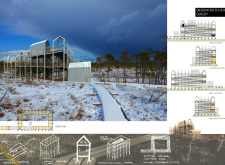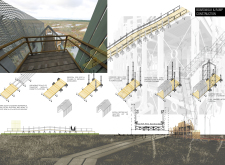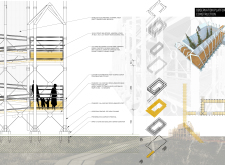5 key facts about this project
### Overview
The observation platform at Kemeri National Park in Latvia is designed to integrate with the surrounding natural landscape while enhancing visitor accessibility and experience. This structure aims to provide unobstructed views of the park's diverse ecosystems, fostering a connection between visitors and their environment. Elevated above the fragile wetlands, the platform minimizes ecological impact and encourages exploration without disturbing the sensitive bog habitat.
### Structural Design and Aesthetics
The platform's design features an elevated form supported by slender columns, resulting in minimal visual disruption. Its angular, peak-like rooflines draw inspiration from the natural silhouettes of the forest, creating a sense of dynamism and stability. Inside, large glass panels afford expansive views that immerse visitors in the surrounding wildlife and natural scenery. The choice of materials plays a crucial role, with sustainably sourced wood providing warmth and organic appeal, while lightweight steel ensures durability. Transparent polycarbonate barriers maintain sightlines and enhance the overall experience.
### Accessibility and Environmental Considerations
The platform incorporates universal accessibility features, including ramps, to accommodate visitors of varying mobility levels. Complementing the platform are upgraded boardwalks that improve navigation within the park. The elevation of the structure is a deliberate strategy to respect the park's topography and ecosystem, while prefabricated components facilitate efficient construction and minimize environmental disruption. This thoughtful approach balances visitor engagement with conservation, promoting responsible interaction with the natural world.


